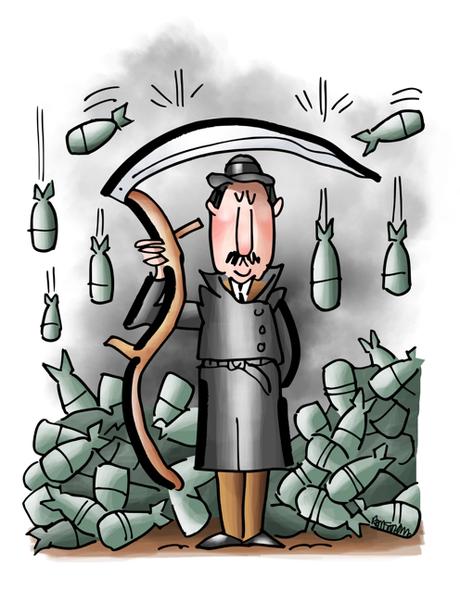 One of my favorite features in the Review section of the Wall Street Journal Weekend edition is Five Best. It contains short reviews of five books on a given subject.
One of my favorite features in the Review section of the Wall Street Journal Weekend edition is Five Best. It contains short reviews of five books on a given subject.
One of those subjects was Diaries From The Blitz.
The Blitz was a German bombing campaign against the United Kingdom during World War II. It ran from September 1940 through May 1941.

Starting on September 7, 1940, the Luftwaffe (German Air Force) bombed London for 57 consecutive nights. Seaports and industrial centers were also targeted.

During the nightly bombing raids, Londoners slept in warehouse basements and The Underground (subway stations) on makeshift beds with no privacy or sanitation.

It hardened British resolve: they used chalk to scrawl “Business As Usual” on boarded up shop windows.

Over 40,000 people were killed during The Blitz. A third of London was destroyed.

I can’t imagine living through it. Just reading about it makes any complaints I have seem utterly trivial.

It’s extraordinary to think that anyone kept a diary in the midst of it all– but they did.

John Colville was one of Winston Churchill’s private secretaries. Volume 1 of his Downing Street Diaries records some funny, ludicrous moments.

Sometimes, late at night, Churchill would march around to military music played on a gramophone. During air raids, Churchill would often go up to the roof to watch the bombs fall, dragging Mr. Colville with him.

I find myself in sympathy with Churchill, and I see two lessons.

One, you do what you need to do to keep your spirits up. A lot of people use music to “get pumped.”

And secondly, there are times when we have no real control over events. We can turn away, or we can watch the bombs fall, steel ourselves and resolve to pick up the pieces and start again.

By the spring of 1941, much of London lay in ruins and Britain’s survival was uncertain. Colville wrote:

As I walk through the streets, I look at London’s landmarks more carefully now, with the feeling that it may be the last
time I shall see them.”
We take so much for granted. We don’t appreciate people and places and things until they’re gone. Do any of us ever really learn that lesson?

Harold Nicolson worked in Churchill’s Ministry of Information.
In his diary (The War Years, 1939-45), he writes that Britain will prevail, but admits his belief is groundless.

From March, 1941:

If only we could show people some glimmer of light at the
end of the tunnel, we could count upon their enduring any ordeal… (but) there is no light beyond the light of faith.


For me, religious faith underpins what I do. To succeed, you also need to have faith in yourself: self-confidence.

For some of us, it accrues slowly over time: solve enough problems, and there comes a time when you know you can solve the next one. You don’t know what it will be, but you will solve it. A faith born of skills and experience.

Olivia Cockett was a police clerk who kept a diary during the war (Love and War in London). At one point she puts out an incendiary bomb that falls near her home. She becomes fearless.

One night she’s out walking with her lover when two bombs fall nearby. He shouts for her to get down. She writes: “I thought: ‘Not in my new coat.'”

The lesson of perspective: The more crises you weather, the less traumatic they become. Hide in your room, and you’re always afraid. Everything’s a big deal.

But sail forth into the fray, take your knocks in love and business and everything else, and you understand that this, too, shall pass.

You learn to shrug things off and continue on.

Raymond Lee was an American military attaché to the U.S. embassy in London. On September 15, 1940, after a week of heavy nightly bombing, he wrote:

If there was ever a time when one should wear life like a loose garment, this is it.
Perhaps that’s the wisest lesson of all.

We don’t have bombs raining down on us every night. Even during a pandemic, most of us are living safe and easy lives.


